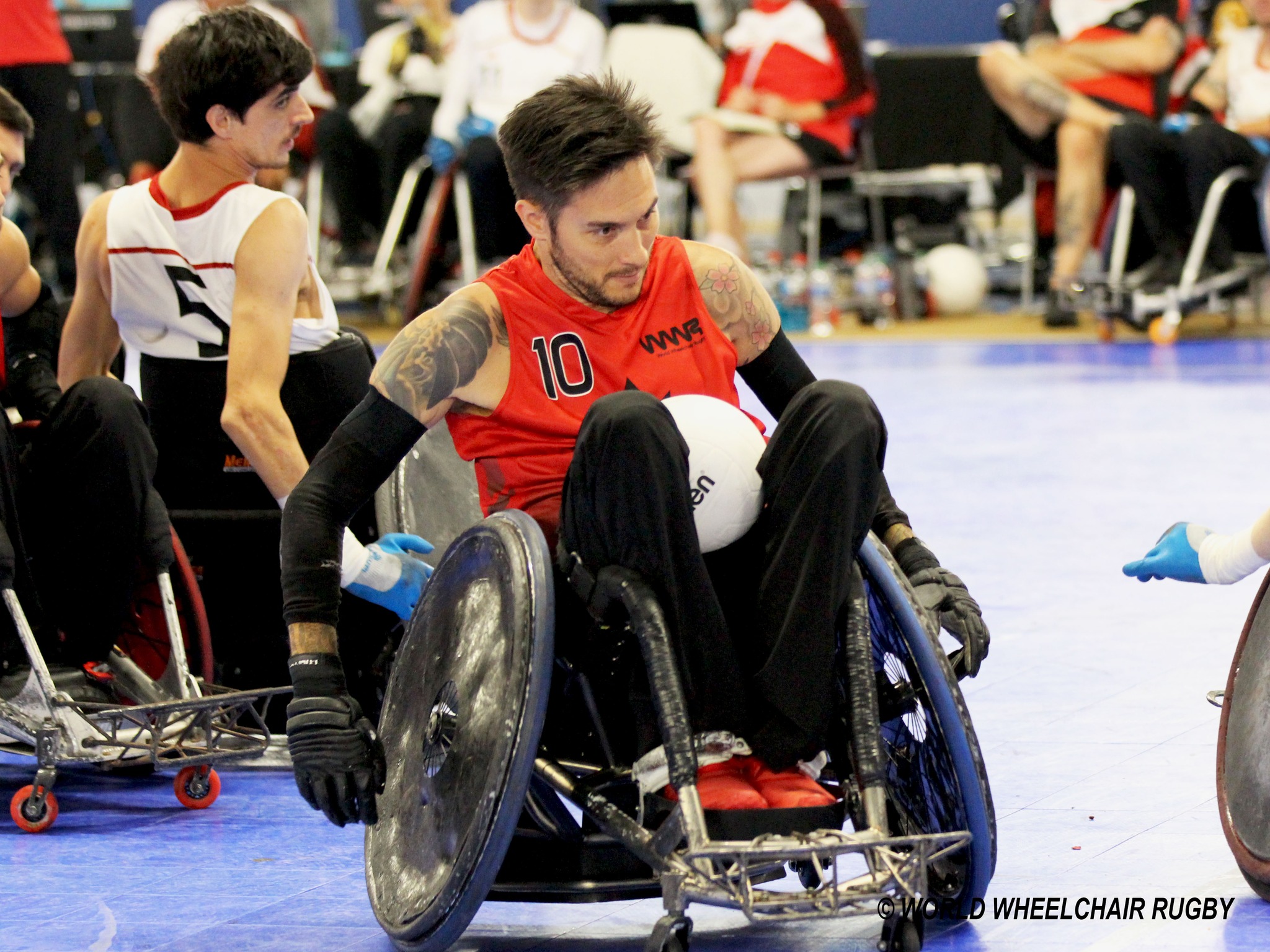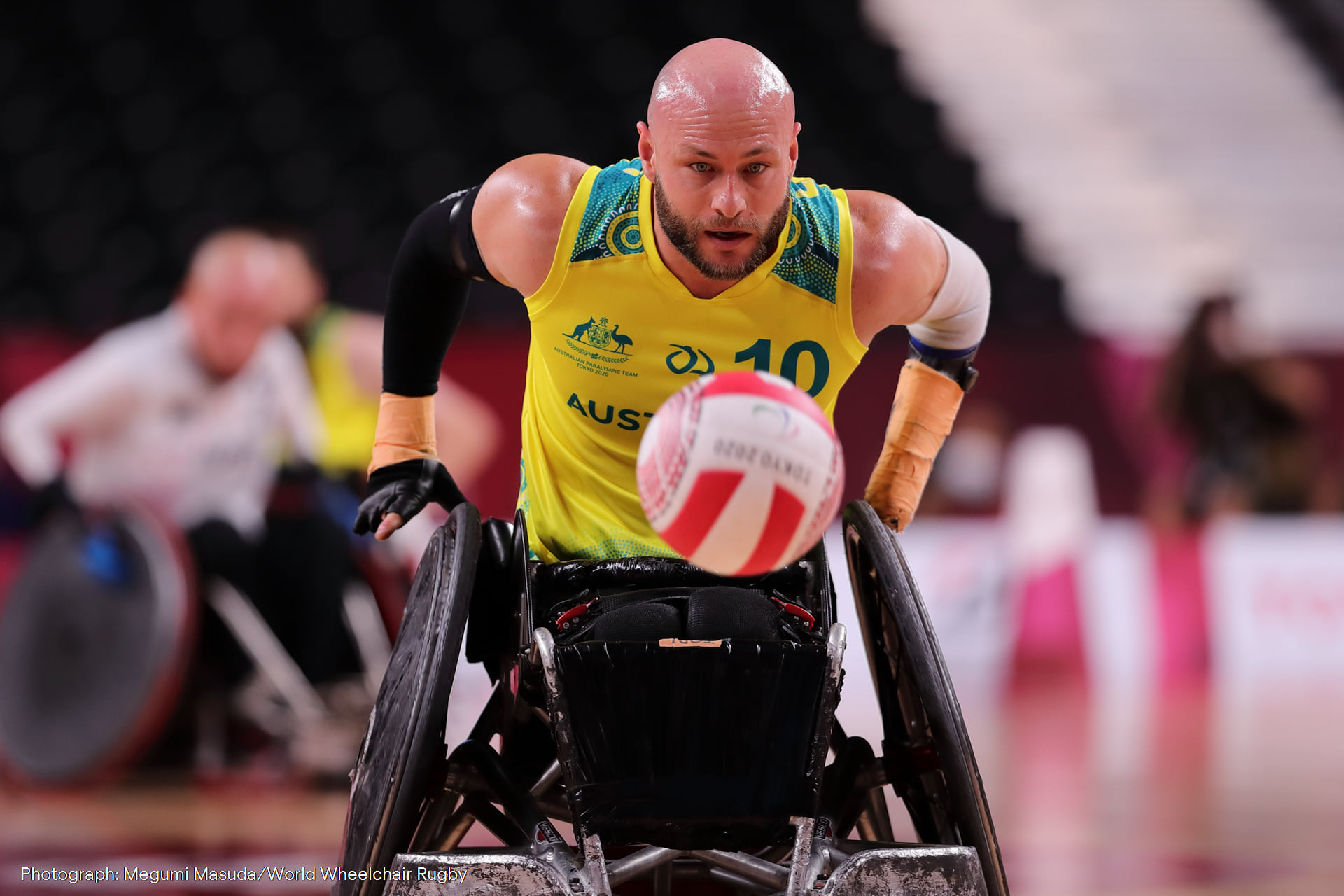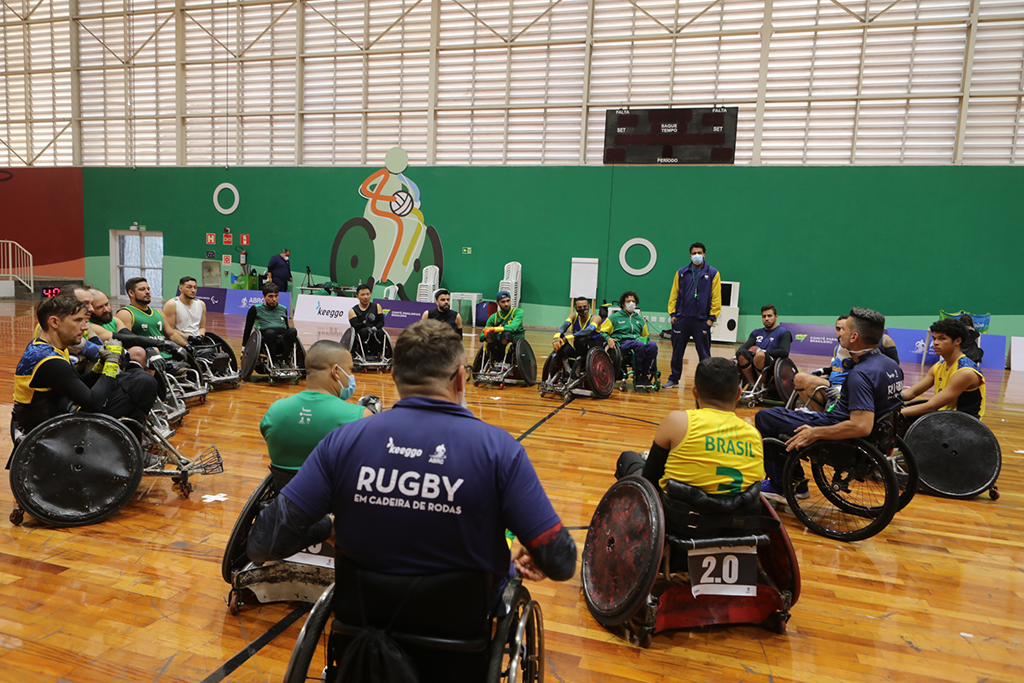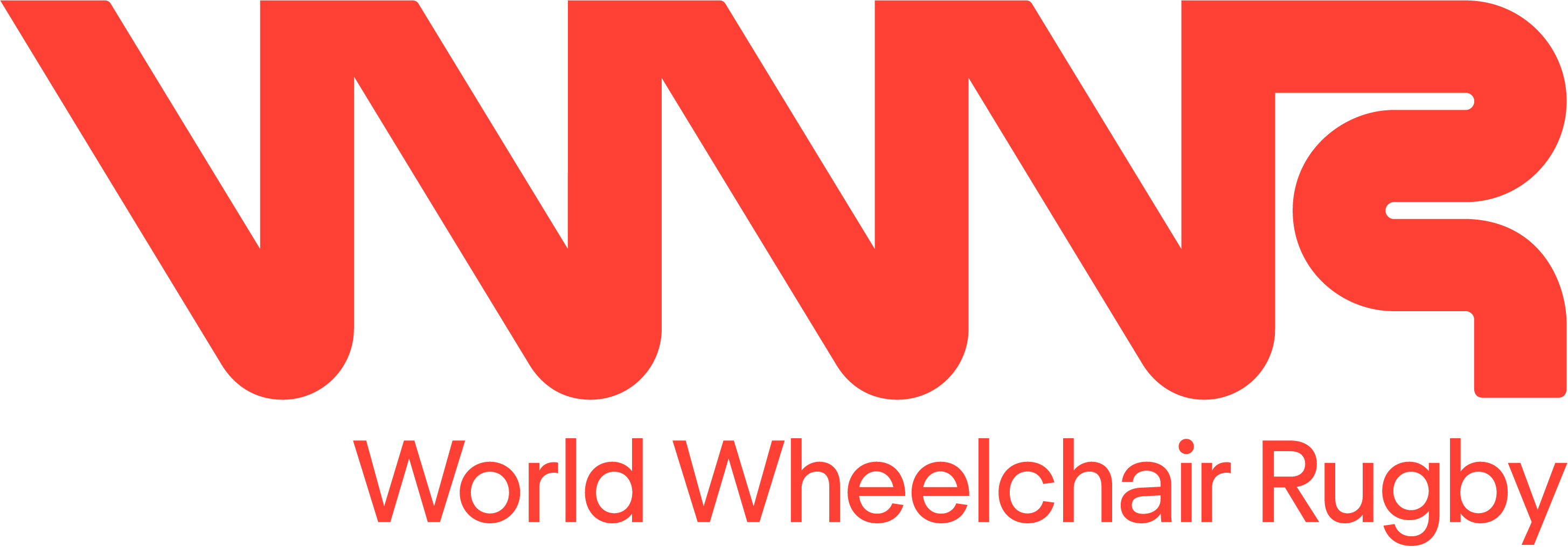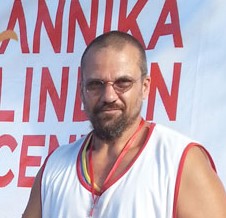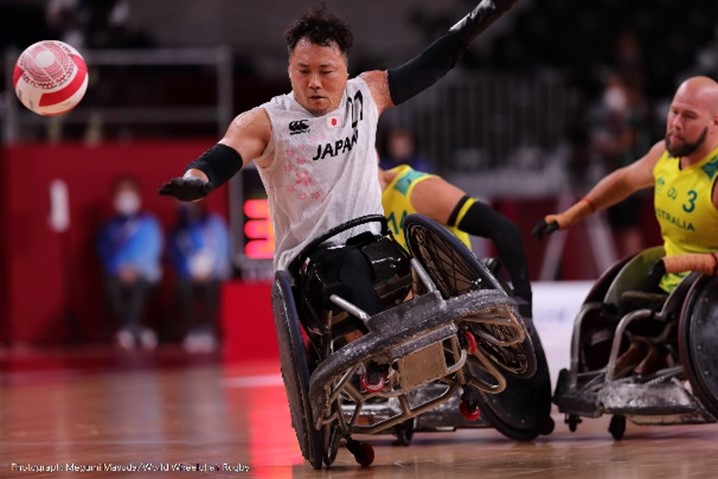By Nathan Bragg for World Wheelchair Rugby
They won’t be topping the try charts, and if you’re new to watching Wheelchair Rugby or parasport, you may have questions about their roles, but low-pointers are crucial to their team’s success in Wheelchair Rugby.
Here’s a breakdown on low-pointers and a brief look at a few top ones to watch out for when the 2022 Wheelchair Rugby World Championships tip-off in Denmark on Monday.
What Are “Low-Pointers”
The term “Low-pointer” refers to athletes classified between 0.5-1.5 in the sport’s 0.5-3.5 classification system. Wheelchair Rugby uses a classification system to ensure that athletes with different types of disabilities can compete together.
To be eligible to play wheelchair rugby, athletes must have impairment in at least three limbs. However, even with this restriction, a wide range of function exists among athletes.
Athletes are evaluated by a team of classifiers and assigned a number based on their functional ability. The number ranges from 0.5 (for athletes with the least function) to 3.5 (for athletes with the most function) and increases in 0.5 increments. The four athletes on the court must total no more than 8.0 points (with an additional 0.5 allowed for each female athlete on the court).
As athletes on the lower end of the scale, low-pointers usually have less strength and speed than mid and high-point players and often (though not always) play in defensive chairs with a pick bar on the end of them, to hook on to and hold opposing players. Low-pointers also tend to have more significantly limited hands and triceps, which makes passing and catching more difficult and their highlight reel catches all the more impressive.
The role of low-pointers
Low-pointers aren’t often prolific try scorers, but they do much of the dirty work necessary to win a rugby match. They set picks and screens, leak out to provide a passing outlet, are often relied upon as inbounders, and can make game-changing plays when they manage to slow down opposing high-pointers.
Different teams will employ their low-pointers in varying ways, but they’ve been even more important with the popularity of hi-lo (2 high-pointer and 2 low-pointer) line-ups in the past decade. When two teams have equally matched high-pointers, an elite low-point player can swing a match.
Some call low-pointers defensive players, but the reality is that all wheelchair rugby play in both attack and defense. Much of the sport is played in transition, the phase of the game where teams are switching between attack and defense after a try is scored, and that’s an area where low-pointers are vital.
Ones to Watch
Here are five talented and established low-point players to watch out for in Vejle. While these five are among the big names in the sport, it’s a great era for low-point play right now with many incredibly skilled players set to compete across the 12 teams at Worlds, and it’ll be exciting to see which players seize the spotlight this year.
Kylie Grimes (0.5F)
The Paralympic gold medalist enters the World Championship in great form on the back of impressive performances in the lead-up to Worlds at the Lakeshore Tri Nations, Canada Cup, and, King Power Quad Nations.
GB’s had great success lately with their 3.5 2.5 2.0 0.5F line where Grimes has done a phenomenal job creating lanes and windows for her teammates, sealing corners, and coming up with defensive stops on ball handlers.
Great Britain may have the strongest collection of 0.5s in the tournament, with legend Jonathan Coggan, Grimes, and rapidly emerging talent Jack Smith, all fantastic options for Coach Paul Shaw at a key classification.
Trevor Hirschfield (1.0) – Canada
A two-time World Championship All-Star and winner of numerous Best in Class awards, Trevor Hirschfield has been one of the world’s top wheelchair rugby players for over a decade. He’s an all-around player with a habit of coming up with decisive plays in the big moments, be they tries, catches, or steals.
A great reader of the game, he’s one of the best at finding and filling lanes on the court. Opposing ball handlers need to know where he is at all times, as he’s got a real talent for using his long arms and quick hands to cause deflections and get steals.
As co-captain of Team Canada, his leadership and on-court play will be crucial to their hopes of getting back on the podium.
Carlos Montoya (1.0) – Colombia
Montoya may be the best passing 1.0 in the world. He’s got incredible passing range and plays a huge role in everything that Colombia does on both sides of the court.
A fast and physical player who was named best 1.0 at the last World Championships in Sydney. The mobile Colombian is definitely a player to keep an eye on the lower-ranked teams in the field.
Seiya Norimatsu 1.5 (Japan)
Seiya Norimatsu is a smart and versatile defender who often covers opposing mid and pointers.
His game has grown in leaps and bounds since his debut at the 2014 World Championship, and he played a huge role in Japan’s back-to-back Paralympic bronze medals and 1st World Championship title in 2018.
A dependable inbounder who defenders also can’t afford to leave open deep. Norimatsu could be a real x-factor as Japan pursues its title defense in Vejle.
If you’re looking for an example of fantastic low-point play after reading this, go and watch Norimatsu’s performance in the semifinals of the 2018 World Championship, available on WWR’s Facebook page.
Cédric Nankin (1.5) – France
Nankin is one of the world’s top defensive players, regardless of classification. The Frenchman’s combination of speed and agility makes him an absolute pain for opposing high-pointers. With his strong pick and quick first few pushes, he regularly matches up with higher-classified players and often forces opposing speedsters to adjust how they transition from defense to offense.
Put simply, Nankin is a joy to watch on the defensive end, and he’s improved his ability to protect and offload the ball on offense. He’s an intelligent player who maximizes his strengths and finds creative ways to minimize his weaknesses.
After helping France to a European title in February, Nankin could be a difference maker again as Les Bleus push forward in Denmark.
Connect with the Championship
Once the competition starts and the tries start going up on the scoreboard, take some time to appreciate the dirty work that goes into each score; chances are that a low-pointer helped make it happen.
Which low-pointers are you excited to see ply their trade in Vejle? What’s an element of low-point play that you wish got more attention? Let us know and follow the tournament throughout next week in Vejle.
Learn More
To learn more about the World Wheelchair Rugby Championships, please visit 2022wrwc.com
To learn more about Wheelchair Rugby and World Wheelchair Rugby, please visit
world.wheelchairrugby

